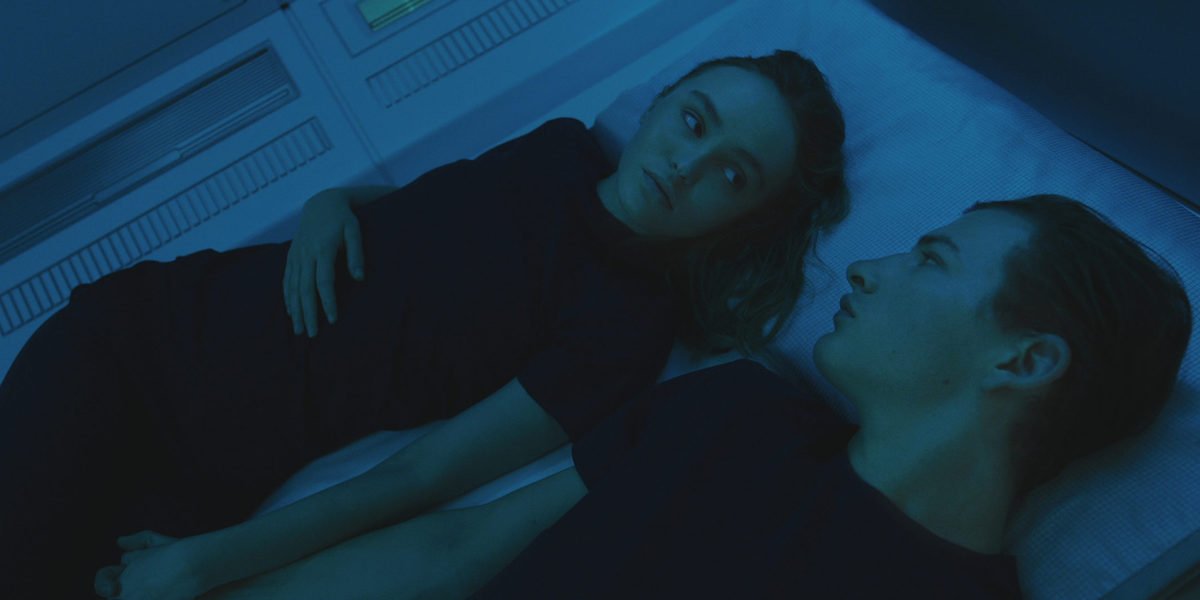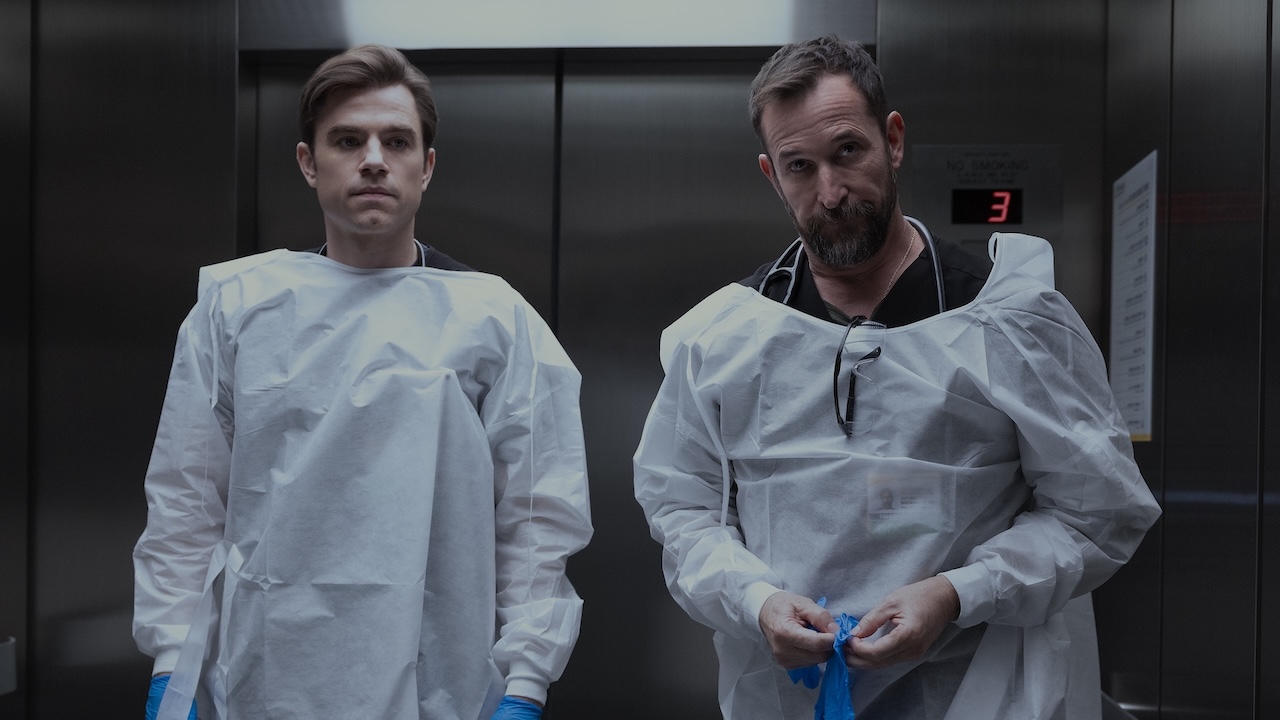The Commercial Space Age is seemingly before us, as we’re slowly seeing an exploration of exciting journeys out of Earth’s atmosphere. Neil Burger’s Voyagers challenges the freedom that Star Trek or Star Wars often depict when traveling among the stars. This science fiction thriller imagines the long jaunt of a group of children raised in space – doomed to spend their whole lives on their way to a destination on another world. Although it serves as an interesting thought experiment, the movie's most burning question in its space expedition is simply a sullen, “Are we there yet?”
Voyagers establishes a world where a hospitable planet away from Earth has been discovered, but it takes 86 years for its crew to arrive. In order to start a colony of humans on this new world, a crew of 30 children are placed aboard a mission to grow up together and procreate in hopes that their children will eventually arrive safely and settle. The movie follows the crew as young adults when one discovers that they’ve been given a drug that suppresses their ability to truly feel human their whole lives, and a Lord of the Flies scenario ensues.
Voyagers has a solid, immersive concept... until it cuts the cord.
Neil Burger is a solid filmmaker to bring a science-fiction concept such as Voyagers to life. The writer/director memorably made 2011’s Limitless, which conversely explores a drug that opens up an expansive world to Bradley Cooper’s leading character. Burger also successfully played around with YA dystopia with 2014’s Divergent. Voyagers feels like a bit of a remix of these two films, but unfortunately does not take its concept across that line that previous sci-fi films of its kind have dared to go.
The first half of Voyagers is well executed. The cinematography is stylistic and successfully envelopes the audience in the spaceship these 30 kids grew up on. The heart of the film feels carried in Colin Farrell’s character, who is the only human on the crew who was not born on the ship. It’s interesting to understand the mission through his eyes, as Farrell bonds with the rest of the crew as he explains to them about how their existence will usher in generations of life, even though their own lives must be suppressed to living on a ship with the same routine day-to-day.
Voyagers is less of a science fiction action-adventure, and more so a claustrophobic thriller and introspective piece on how a group of young adults may react to its premise. The two concepts that end up being discussed here are whether one should suffer today to benefit future generations, or go prioritize self-focused autonomy – which some members of the crew start to adopt as they challenge both their upbringings and mission. But when Voyagers enters its second half it becomes more of a tired arguing match than an intriguing commentary.
The talented Tye Sheridan and Lily-Rose Depp are not given enough to work with.
The two actors that seek to anchor Voyagers are Tye Sheridan (Ready Player One, X-Men: Days of Future Past) and Lily-Rose Depp (The King, Yoga Hosers). They each offer solid performances on their own, along with Fionn Whitehead (Dunkirk, Black Mirror: Bandersnatch). The chemistry is overall thin and it feels as though they were restrained by the content of the script. Voyagers is basically about a group of young people who lack personality because they have been shielded from culture and pleasure and with that it becomes difficult to empathize with them.
There absolutely could have been a version of Voyagers that explored its concept and allowed room to show off complex and interesting characters, but the movie is so focused on being plot driven that it doesn't have that capacity.
Your Daily Blend of Entertainment News
Voyagers is a sci-fi film that is much too safe and confining to satisfy.
Voyagers also misses the mark on exploring the euphoria of these young people learning about their sexual desires for the first time. The movie’s use of sexuality ends up being disappointing because it's more so explored in a predatory, empty kind of way. Overall, the movie glosses over one of the most intriguing aspects sparked throughout the film, and when the crew has the chance to dive deeper into its characters it stays on the surface.
Despite its character flaws, the movie does manage to be entertaining to some degree. It takes an old school science fiction approach that calls for performance over big effects or expertly-choreographed action sequences. A studio film going for a more intimate, dramatic approach for this genre of film is rare, but there’s just not enough appeal on an intellectual or thematic level to engage the viewer with this approach. Voyagers is overall disappointing, but is not without some heart and allure.

Sarah El-Mahmoud has been with CinemaBlend since 2018 after graduating from Cal State Fullerton with a degree in Journalism. In college, she was the Managing Editor of the award-winning college paper, The Daily Titan, where she specialized in writing/editing long-form features, profiles and arts & entertainment coverage, including her first run-in with movie reporting, with a phone interview with Guillermo del Toro for Best Picture winner, The Shape of Water. Now she's into covering YA television and movies, and plenty of horror. Word webslinger. All her writing should be read in Sarah Connor’s Terminator 2 voice over.

